Fantasy Books
The Spellshop - Book Review
 The Spellshopby Sarah Beth Durst
The Spellshopby Sarah Beth DurstWhat is it about:The Spellshop is Sarah Beth Durst’s romantasy debut–a lush cottagecore tale full of stolen spellbooks, unexpected friendships, sweet jams, and even sweeter love.
Kiela has always had trouble dealing with people. Thankfully, as a librarian at the Great Library of Alyssium, she and her assistant, Caz—a magically sentient spider plant—have spent the last decade sequestered among the empire’s most precious spellbooks, preserving their magic for the city’s elite.
When a revolution begins and the library goes up in flames, she and Caz flee with all the spellbooks they can carry and head to a remote island Kiela never thought she’d see again: her childhood home. Taking refuge there, Kiela discovers, much to her dismay, a nosy—and very handsome—neighbor who can’t take a hint and keeps showing up day after day to make sure she’s fed and to help fix up her new home.
In need of income, Kiela identifies something that even the bakery in town doesn’t have: jam. With the help of an old recipe book her parents left her and a bit of illegal magic, her cottage garden is soon covered in ripe berries.
But magic can do more than make life a little sweeter, so Kiela risks the consequences of using unsanctioned spells and opens the island’s first-ever and much needed secret spellshop.
What did I think of it:When Jeffe told me I should read this book, I was easily convinced as I absolutely love Sarah Beth Durst's The Queen of Blood (I'm so going to get my trotters on the new paperback once it releases, because: have you seen that new cover!).
And this book is so going on my keeper shelves and will be hugged, treasured, and reread!
What a beautiful, touching read. If you need a cozy Fantasy read: look no further and get your hands on The Spellshop!
I loved Kiela from the start, and don't get me started on Caz, because I'll be singing his praises for hours. I mean: an intelligent, talking, sarcastic spider plant!!
The story is so sweet, and I kept reading to see what happens next for Kiela and Caz. There's some danger to keep you on edge, but mainly this book was delightful and full of whimsy. It made me smile while reading.
So you bet I jumped on the chance to read an Advance Reader Copy of the next book set in the same world as The Spellshop.
Why should you read it:It's a beautiful, cozy, and heartwarming Fantasy read.
SPFBO Finalist Interview - Hiyodori, the Author of The Forest at The Heart of Her Mage

ABOUT THE AUTHOR: Hiyodori is not a bird. But she is dearly fond of her namesake, a plain-looking brown-gray bird that likes to perch near her Tokyo apartment and unleash the most incredible primal screams. Hiyodori (the human author) loves stories with fantastical settings and complicated, difficult-to-define relationships. All of her books—including Carrion Saints, her latest standalone novel—take place in the same shared fantasy universe.
The Forest at The Heart of Her Mage links: Amazon, Goodreads
Thank you for agreeing to this interview. Before we start, tell us a little about yourself.
Thanks for having me! I’ve just emerged from a month spent obsessively playing the latest game in the Trails series (epic story-heavy RPGs from a company called Nihon Falcom). I'm still reeling! In a good way, that is.
I’ve been based in Tokyo for a while now, and I love it here, but I pretty much live the opposite of a bustling city life. Some areas are actually very quiet, with plenty of greenery and few high-rise buildings. Each Tokyo neighborhood (usually centered around the nearest train station) feels like a town unto itself. There’s a place for every type of personality.
Do you have a day job? If so, what is it?
Yes—one that uses a totally different part of my brain, so it feels like a refreshing break from writing (and vice versa). Loosely speaking, my role has elements of marketing, business strategy, and project management. So I get to do a lot of planning and light number crunching.
Who are some of your favorite writers, and why is their work important to you?
I really admire Megan Whalen Turner. Every single book in her Queen’s Thief series is a gem of elegant writing, tight plotting, and subtle characterization. She’s unbelievably good at evoking powerful emotions through implication, with understated language. I first encountered her work decades ago, and I love it just as much today. The Queen’s Thief series also happens to contain one of my favorite romantic arcs in any storytelling medium—which, for those familiar with the details, probably tells you a lot about my taste in romance.
I also have a soft spot for Haruki Murakami because (many years ago) his novels were among the first books that I read from start to finish in Japanese.
What do you like most about the act of writing?
Not to turn this question around on you, but there’s really only one aspect of writing that I strongly dislike. Everything else—planning, drafting, line editing, working through story-related roadblocks, and so on—is fun and rewarding in its own time and its own way. I don’t think I could pick a favorite phase of the process.
The one part of it that I find downright grueling comes right after finishing a first draft. This is when I make myself read through the entire manuscript without making any changes. I go pretty quickly, and I take notes about plot issues or things to expand on. I hate this read-through because it kills me to breeze past all my clumsy first draft prose without fixing it right then and there.
Still, I’ve never considered skipping that first read. It’s an invaluable way to get a big-picture view of how the story flows before starting in on line-level edits. Everything else about writing feels like pure joy in comparison!
Can you lead us through your creative process? What works and doesn’t work for you? How long do you need to finish a book?
The Forest at the Heart of Her Mage is around 144,000 words. My final outline for it ended up at almost 48,000 words: a third of the length of the actual book.
Proportionally speaking, my outlines usually end up being just about that long. But I don’t complete the entire thing before I dive into the first draft. I start with an outline of a couple thousand words in length, and then the outline and the novel itself grow side by side, from beginning to end. I keep the outline on my screen at all times when drafting, so I never feel like I’m facing a truly blank page.
All of my novels have been written in Scrivener. Couldn’t live without it.
I write and publish two to three books per year. Counting from the moment I start the first draft, I can have a sub-100k book ready for publication with about four months of near-daily work. But that leaves out all the time I may have spent pre-planning the story (whether in past years, or while wrapping up work on a previous novel).
What made you decide to self-publish The Forest at the Heart of Her Mage as opposed to traditional publishing?
This was my fifth self-published novel. Once I got started with self-publishing, it immediately felt so right that I never considered any other path.
What’s your favorite and least favorite parts of self-publishing?
I love being able to do everything myself. And I really, really love having immediate access to sales data. I suppose my day job gave me a taste for that. I’ve got a ton of respect for traditional publishing, but I would struggle with not being able to see daily orders, royalties, etc. That being said, I don’t do anything terribly sophisticated with all this data. I just happen to find it extremely motivating.
As for my least favorite parts of self-publishing… well, I've completely opted out of social media, for instance. Other than that—self-publishing does offer an astonishing amount of control, but even then, you can't control everything. You’re ultimately still reliant on the fairness and accuracy of publishing platforms, which aren’t one hundred percent perfect for everyone at all times (nothing is).
Why did you enter SPFBO?
I’ve followed the contest with great interest and admiration for several years now. (Another standalone novel of mine—The First and Last Demon—ended up being a semifinalist last year.) It’s an incredibly unique opportunity, especially given the fact that there are no entry fees. I’ve never considered entering any other contests, to be honest.
How would you describe the plot of The Forest at the Heart of Her Mage if you had to do so in just one or two sentences?
Tiller is finally ready to revisit the deadly forest where she grew up. But the charismatic mage who enlists as her bodyguard might end up being more dangerous than any of the forest’s magical monsters.
What was your initial inspiration for The Forest at the Heart of Her Mage? How long have you been working on it? Has it evolved from its original idea?
I wrote and published this novel in 2023. From start to end, it took me about five months total. At the same time, many of the basic story ideas came from an abandoned manuscript that I'd left untouched for almost a decade. Perhaps because of that, I honestly have no memory of what originally inspired me.
While key concepts carried over—the names of the main characters, family relationships, the forest, certain monsters, core emotional dilemmas—what I essentially did was salvage my old novel for parts. I wouldn’t even describe it as rewriting from scratch, because I had no interest in creating an improved version of my unpublished past work. I wanted to cook something brand new with similar ingredients.
What genre does it belong to?
It’s a sapphic fantasy romance. (However, the central romance is very slow-burn and low-heat.)
The story takes place in a fictional world with relatively modern amenities—neither overtly futuristic nor medieval, although the characters spend much of their time trekking around in uninhabited wilderness. In that sense, it could be also described as secondary-world contemporary fantasy.
If you had to describe it in 3 adjectives, which would you choose?
Off the top of my head: eerie, pensive, layered.
Is it part of the series or a standalone? If series, how many books have you planned for it?
This is a standalone novel set in the same overall universe as my other stories (including the Clem & Wist series, which has five books to date). I intended for it to be approachable even with zero prior knowledge of the setting.
Who are the key players in this story? Could you introduce us to The Forest at the Heart of Her Mage’s protagonists/antagonists?
Tiller, the protagonist, is a thirty-year-old refugee from a fearsome magical forest. She’s spent the past two decades living quietly in a major city, helping out fellow refugees while also striving not to attract unwanted attention. At the start of the book, she commits to journeying back to the long-lost village of her childhood.
In romance, the main character’s love interest is often positioned as an antagonistic force—not always in the sense of being an evil villain (although I’m personally all for that), but rather in terms of how they serve to spark conflict and drive the story forward. That’s why I’m labeling the following character an antagonist, despite this not being an enemies-to-lovers story.
Carnelian, the love interest and arguable antagonist, is a military mage with a terrible reputation. She’s a frivolous, charming flirt, better known for drinking and gambling than for following orders. Given the horrific risks posed by the notorious magical forest, she’s also the one and only mage willing to accompany Tiller there as a paid bodyguard.
Personality-wise, they’re total opposites. But both of them have a ton of secrets, which get peeled back little by little as they venture deeper into the monster-ridden wilderness where Tiller first grew up.
Does your book feature a magic/magic system? If yes, can you describe it?
It does! I will attempt to describe it as succinctly as possible.
Some people are born with a metaphysical organ known as a magic core. This appears in the population at random; it’s not hereditary in any predictable way. Each core has a specific number of magic branches (kind of like long trailing veins). In most cases, that number is zero—which means you can’t actually use magic, period, and your core just sort of sits there. Also, each branch needs to be imprinted with a specific magic skill before you can use it. So a one-branch mage would be able to learn and utilize a single type of magic (for instance: a limited variant of short-distance teleportation).
All of the above pertains to human magic, which is heavily regimented. The eldritch magic of the forest is something altogether different. It defies human understanding and all attempts to define it. So this novel features the interaction of those two overarching magic systems: one with strict rules, the other wild and loose.
Have you written the book with a particular audience in mind?
I wrote this book for myself. And—by extension—for anyone who shares my penchant for complex, intense, slow-developing sapphic relationships in a magical world.
That’s what I had in mind when I wrote it, at any rate. Personally speaking, as a reader, the promise of that relationship is what would hook me. On the other hand, I’ve heard from people who’ve enjoyed my novels simply as works of fantasy, even if romance in general isn’t really their thing. It’s an honor to think that my writing might have something to offer other types of readers as well.
What’s new or unique about your book that we don’t see much in speculative fiction these days?
I hesitate to assert that anything in my novel is 100% unique or even rare. I read widely, but the umbrella of speculative fiction covers so, so, so many fascinating stories and concepts. Any one feature I choose to highlight might very well be commonplace in a different niche.
I guess I would instead point to the total package—the way these elements combine together. The main characters are both adult women in their thirties. The setting is contemporary, albeit without a direct parallel in the real world. Magic and technology are seen as complementary forces. The romance becomes emotionally intense over time, but it’s low on sentimentality (and any hints of spicy content are all fade-to-black). There are terrifying monsters and zombie-like beings and violent battle scenes, and there are obvious issues with the society that the characters live in, but the deepest conflicts and the highest stakes are all internal.
Anyway, magical forests are a dime a dozen in fantasy! I hope that the particular details of the one in this story make it feel fresh and intriguing and real (or should I say surreal?).
Cover art is always an important factor in book sales. Can you tell us about the idea behind the cover of The Forest at the Heart of Her Mage and the artist?
I made the cover with an illustration licensed from Shutterstock. The wonderful artist, Tithi Luadthong, can also be found at the below sites.
Instagram: https://www.instagram.com/grandfailure9/
Fine Art America: https://fineartamerica.com/profiles/tithi-luadthong
As for why I chose that specific art piece: I was looking for something with magical forest-y vibes, and it fit perfectly, right down to the mystical figure in the middle. (Which could be interpreted as either good or evil, inviting or menacing.)
What are you currently working on that readers might be interested in learning more about, and when can we expect to see it released?
I’m currently working on a hefty standalone novel (another sapphic fantasy romance) that still needs an enormous amount of editing. It’s quite dark, but also weirdly cozy at times. I’m hoping to have it ready for publication sometime within the first few months of 2025.
Thank you for taking the time to answer all the questions. In closing, do you have any parting thoughts or comments you would like to share with our readers?
It was my pleasure! I’m tremendously honored to be a finalist. I’m a bit reclusive by nature (and that might be an understatement). So I’m continually touched and amazed by how people keep finding and reading my books. I owe a huge thanks to everyone who has ever given my work a chance.
Coming Up For Air | Lewis Buzbee’s “Diver” Elegantly Explores Submerged Emotions
There is powerful storytelling in Lewis Buzbee’s Diver. In the same way you can be…
The post Coming Up For Air | Lewis Buzbee’s “Diver” Elegantly Explores Submerged Emotions appeared first on LitStack.
Teaser Tuesdays - The Naturalist Society
 Beth wondered why showing her journals to Mr. Harold Stanley felt more risqué than stealing a kiss. her heart raced; her hands shook.
Beth wondered why showing her journals to Mr. Harold Stanley felt more risqué than stealing a kiss. her heart raced; her hands shook.(page 3 The Naturalist Society by Carrie Vaughn)
---------
Teaser Tuesdays is a weekly bookish meme, previously hosted by MizB of Should Be Reading. Anyone can play along! Just do the following: - Grab your current read - Open to a random page - Share two (2) “teaser” sentences from somewhere on that page BE CAREFUL NOT TO INCLUDE SPOILERS! (make sure that what you share doesn’t give too much away! You don’t want to ruin the book for others!) - Share the title & author, too, so that other TT participants can add the book to their TBR Lists if they like your teasers!
Wizard Battles and Martial Arts: Legend of the Condor Heroes: The Gallants

Good afterevenmorn!
So, my various social media algorithms were working overtime the past couple of months, bombarding me with clips and training videos for the Chinese movie Legends of the Condor Heroes: The Gallants. And, of course, my interest was more than a little piqued. When I heard that the movie was getting an international release, I got more than a little excited.
Given how much I adore Chinese dramas, and kung fu movies, and the fact that I train kung fu and Chinese kickboxing (called San Da, or less frequently San Shou), there was no way in hell that I would not be going out to see this film.
I went in pretty much blind, with only a trailer (which gave nearly nothing away), and the training videos. So it had virtually no idea what it was all about. This will matter quite a bit, as we will see.
The trailer I saw
What I learnt after the fact is that this film is loosely based on the first (射鵰英雄傳 (The Legend of the Condor Heroes)) of a trilogy of books by Chinese author 金庸 (Jin Yong), which I have not read (but would love to get my hands on a translation of). The novels are technically Wixia, a Chinese historical fantasy, which typically follow an unattached warrior who follows a chivalric code (俠 (xia)). Emphasis on fantasy in this case. More on that later.
Now, I am quite familiar with the male lead Xiao Zhan (肖战), who has been in a number of dramas I’ve watched, but is probably most famous for his role in The Untamed here in the Western Hemisphere. He’s a very talented actor, and I’ve enjoyed most everything I’ve seen him in (and even the ones that were so-so, he was the bright spot for). And I’m so pleased that there was a foreign film that I didn’t have to find a niche theatre for. I was, and am, very happy to encourage more of that.
The last Chinese film I saw in theatres was Crouching Tiger, Hidden Dragon. So… quite a while ago. I remember it absolutely blowing me a way (and wrecking me emotionally), so I was really eager to see this. With that in mind, off I trundled with a couple of my martial arts students on Sunday to watch the movie.
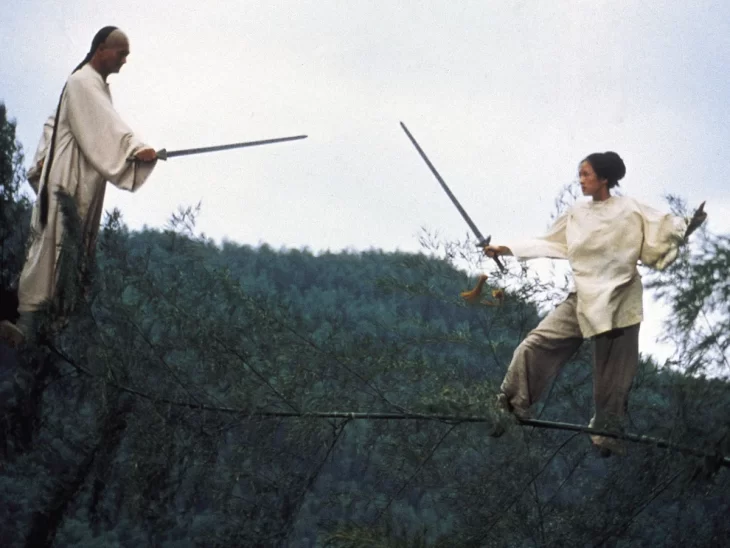 There are three movies I will rewatch any time I need a good cry. This is one of them.
There are three movies I will rewatch any time I need a good cry. This is one of them.
The movie centres on one Guo Jing (郭靖), a Han Chinese man from the Song Dynasty raised in Mongolia by the Khan who took him and his mother in following the strife between the Jin and Song empires (the Jin rise to power shattered the Song Dynasty, and they moved south to become the Southern Song Empire), and the tension between his two identities — a Han Chinese man from the Southern Song Empire and a man raised as a Mongol, by the Khan, and sworn brother to Mongols.
And it was great! A whole lot of fun; but with some caveats.
The first is that, as this was based on a novel, there is a lot of information packed into a relatively short amount of time (just over 2 hours), and if you’re not paying attention, you miss an awful lot. For those of us unfamiliar with the source material, it did lessen the emotional impact of certain scenes. It might be just my 40 episode drama-watching brain, but this probably could have been a couple of movies.
An awful lot is glossed over rather quickly in what feels like a “Previously On” moment. I was left with the feeling that there was a prequel movie that I have not seen. I haven’t done any research on whether that was the case as of the writing of this. When we finally get into the meat of the movie, Guo Jing has separated from the woman he loves, whom he travelled all over the Middle Lands and trained with, and has already mastered the techniques from a much-sought-after scroll, whom this young woman (Huang Rong (黃蓉)) apparently has possession of. Following so far?
 Our heroes Huang Rong and Guo Jing
Our heroes Huang Rong and Guo Jing
Separated, Huang Rong is pursued by three of the five masters — a martial art specialists from three of the five styles of martial arts (kung fu… sort of) in the Middle Lands. The lead, Venom West, desperately wants the scroll she carries. He was, apparently, preciously defeated by Guo Jing in an encounter we only get flashbacks of (rather disappointingly).
I’m not going to give too much away, but eventually the lovers reunite, and simultaneously save both the Khan and the Southern Song Empire; the Khan from Venom West, who has gone mad, and the Southern Song from the Mongols, who were just themselves saved.
The story itself was very fun, with some impressive action sequences, but I find myself a little disappointed that they weren’t more grounded. Remember when I mentioned that the emphasis was on fantasy? Well, all the fighting in this was basically magic battles between wizards. There was actually very little proper fighting involved. Given the training videos I saw, I was expecting a little more proper combat.
One of several videos that promised something that wasn’t delivered.
Crouching Tiger, Hidden Dragon leant into the fantasy, what with the flying through the air and landing on bamboo as if their bones were hollow/they could actually levitate. But the fighting in that was actual fighting; highly choreographed, but fighting all the same. With that as my only reference for Chinese movies, and with the training videos, I do feel a little cheated. Particularly since in several of the training videos, I could recognise the styles employed.
There was no real hand-to-hand combat in the film.
Now, it’s entirely possible that the training shorts I saw were actually for a completely different project. I do know that many of these actors are incredibly busy, working or three or more projects a year. So it’s entirely possible that all the videos were mislabelled and were for something else entirely.
The movie also ends in what feels like the middle of the story. Hardly surprising since it’s the first book in a trilogy. The sort-of middle-of-the-story vignette that this film presents is not unlike My Neighbour Totoro. Both movies left me with an “this is unfinished” feeling.
 The Khan’s daughter and a love rival. I loved her character a lot.
The Khan’s daughter and a love rival. I loved her character a lot.
Despite the slight disappointment of all the fights being wizard battles, and the unusual feeling of being shown but a snippet of a story, however, the movie was a whole lot of fun. I loved hearing both Mandarin and Mongolian. I loved how the Mongols weren’t made the villains (I initially thought they were, and it would have been easy to have made them thus — kind of like Russians for 80s Hollywood movies). And I adored having something other than the increasingly formulaic and mindless films we’ve been fed of late to spend a Sunday afternoon watching.
I really do wish more foreign films would get wide releases like this. We could use the fresh perspectives and fascinating stories other cultures bring. I had a lot of fun with this one. If you are going to see it, you must pay close attention, but it was certainly worth it. If there are sequels that make it out our way, I’ll definitely be watching. But first, I need to get my hands on English versions of these books!
When S.M. Carrière isn’t brutally killing your favorite characters, she spends her time teaching martial arts, live streaming video games, and cuddling her cat. In other words, she spends her time teaching others to kill, streaming her digital kills, and a cuddling furry murderer. Her most recent titles include Daughters of Britain, Skylark and Human. Her serial The New Haven Incident is free and goes up every Friday on her blog.
Monday Musings: A Little Piece of Italy
Last April, after a grief-filled winter, and a previous fall that was more difficult than I could possibly describe, Nancy and I went to Italy for three weeks — a long-delayed trip that had once been intended as a celebration of our 60th birthdays, both of which were more than a year passed by then.
While in Italy, we spent four lovely days in the ridiculously picturesque city of Venice, and while there, we took a day to visit Murano, a portion of the city that is renowned for its glass factories. It is, if you are not familiar with the history of glass-making in Venice, home to the Murano Glassworks, one of the most renowned glass producers in the world. It is also a gorgeous part of the city. We had a great time there, walking around, looking in shops, getting some food, enjoying the play of color and light on the waterways and old buildings. We watched a glass-blowing exhibition at the Murano factory, and bought many gifts for friends and family back home, as well as for Nancy.
While walking around, searching for a small souvenir of my own, I stopped in at a modest shop on a square, and found, among other things, several small squares of glass in which were embedded finely-wrought images of bare trees. I was captivated and started up a halting conversation with the shop’s owner, who spoke only a bit more English than I did Italian. We managed to communicate, though, and had a very nice exchange. The works in question, it turned out, had been done by the man’s father. He shaped the trees out of strands of steel wool and then placed them in small molds which he filled with melted glass. Each image came out slightly differently. All of them were delicate and beautiful and utterly unlike anything else I had seen in Venice (or anywhere else, for that matter).
I bought the one you see in the photo here. It is small — only 2 1/2 inches by 2 inches — and it is signed — etched, actually — by the artist. I don’t recall what I paid for it. Honestly, I don’t care. I love it. The man wrapped it up in tissue paper, took my payment, and I left his shop, likely never to see him again.
 I kept it wrapped up even after we returned to the States. My plan was to open it once we were in our new house, which is what I did. It now sits in my office window, catching the late afternoon sun. And it reminds me of so much. That trip to Italy, which marked the beginning of my personal recovery from the trauma of losing Alex. That day in Venice, which was gloriously fun. The conversation with the kind shopkeeper, whose love for and pride in his father was palpable throughout our exchange. More, that little glass piece is an image of winter, and it sparkles like a gem when the sun hits it. It reminds me that even after a long cold winter, a time of grief and pain, there is always new life and the joy of a new spring.
I kept it wrapped up even after we returned to the States. My plan was to open it once we were in our new house, which is what I did. It now sits in my office window, catching the late afternoon sun. And it reminds me of so much. That trip to Italy, which marked the beginning of my personal recovery from the trauma of losing Alex. That day in Venice, which was gloriously fun. The conversation with the kind shopkeeper, whose love for and pride in his father was palpable throughout our exchange. More, that little glass piece is an image of winter, and it sparkles like a gem when the sun hits it. It reminds me that even after a long cold winter, a time of grief and pain, there is always new life and the joy of a new spring.
 A cliché, to be sure. But as with so many clichés, it’s rooted in truth.
A cliché, to be sure. But as with so many clichés, it’s rooted in truth.
That little tree — the simplicity of steel wool preserved in glass — brings me joy and comfort all out of proportion to its size and cost. I think Alex would love it, too.
When we were getting ready to move, Nancy and I unloaded a lot of stuff. We talked often of the joy we derived from “lightening our lives,” culling from our belongings items we no longer needed or wanted. And I am so glad to have done that work. But I will admit that I still get great pleasure out of many of things we kept, including little tchotchkes (Yiddish for “trinkets” or “little nothings”) like this one.
Wishing you a wonderful week.
Spotlight on “The Unwanted” by Boris Fishman
The Unwanted is a stunning story of what the most powerless among us will do…
The post Spotlight on “The Unwanted” by Boris Fishman appeared first on LitStack.
Guns or Butter? Total War: Warhammer II
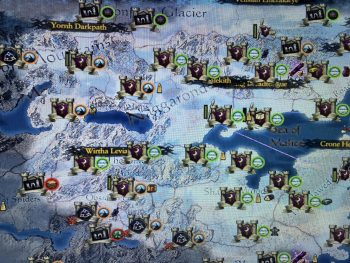 I came to Total War way back when, through TW: Rome. Arriving in 2004, it was the third game in the TW series, after Shogun, and Medieval. I liked it, though I wasn’t addicted – as I was to many games back then. But it was fun marshaling armies, and then marching them out to crush your enemies. I talked about it a little bit a few weeks ago in my RTS overview (man, Myth: The Fallen Lords was such a great game!).
I came to Total War way back when, through TW: Rome. Arriving in 2004, it was the third game in the TW series, after Shogun, and Medieval. I liked it, though I wasn’t addicted – as I was to many games back then. But it was fun marshaling armies, and then marching them out to crush your enemies. I talked about it a little bit a few weeks ago in my RTS overview (man, Myth: The Fallen Lords was such a great game!).
Sort of the “What is best in life?” response from the first Conan movie with Ah-nuld:
“To crush your enemies, see them driven before you, and to hear the lamentations of their women.”
There have been over a dozen incarnations, with the Egyptian-themed Pharaoh just dropping in 2023. What I’d LOOOOOVE, is for them to get the license from the Tolkien Estate and do TW: Middle Earth. I enjoyed Battle for Middle Earth I (never played II). But even a decently-done TW: Middle Earth would be FANTASTIC!!!!
Anywhoo. I’ve never done the Warhammer thing, but TW: Warhammer I came out in 2016. And TW: Warhammer II followed the next year. WH II has become the rabbit hole I periodically jump down. This game is — as my buddy Tony dubbed Diablo II long ago — electronic crack.
If you have WH I, you can use those factions/lords some in WH II. But you don’t need them at all. And while the base game is more than enough, part of the TW fun is buying the DLC – they add heroes, factions, and even a few campaigns. I don’t have WH III, but I the model is the same.
I have all the DLC for both WH I, and II. They are frequently 50% off+ on sale. Total War keeps ‘old’ product at original prices. It’s an annoying business model, and they do a boatload of DLC. But the base games have more than enough content. I just like the extra stuff to check out. And you don’t have to buy it, off course.
The Game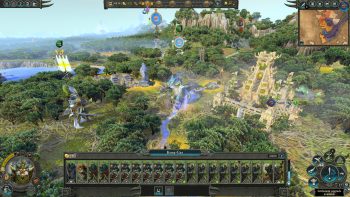 Some basics about Total War – at least, the Warhammer II version. The principles of the series are generally the same. You know what you’re getting, but the engine has evolved over the years. Warhammer II is pretty similar to I. I have not played III yet. I tried to go back to Rome Remastered earlier this year, and that old engine just didn’t work for me anymore.
Some basics about Total War – at least, the Warhammer II version. The principles of the series are generally the same. You know what you’re getting, but the engine has evolved over the years. Warhammer II is pretty similar to I. I have not played III yet. I tried to go back to Rome Remastered earlier this year, and that old engine just didn’t work for me anymore.
The general concept is you take charge of a faction (Elves, dwarves, vampire pirates, etc. In other games it’s Roman families, or medieval countries. You get it).
You build up settlements, and armies on a unit basis, for your faction. You can choose to fight the battles yourself (usually advantageous in outcome) or use auto-resolve. I find the battles time-consuming and not that much fun, so I auto-resolve. The benefits of auto-resolve seem to be reduced from winning the actual fights yourself, though.
Terrain matters in battles, and also on the global map. Dwarven settlements thrive in mountain regions. The vampire lords corrupt the land, making it less/unsuitable for some factions. The lizardmen are primarily in the jungles. So, the faction you choose often impacts what part of the world you start in, and where you choose to expand to.
You attack other armies, and settlements, or colonize ruined ones. You build them up, gaining advantages if you control all the settlements in a single province. You have to balance chasing quests, conquering settlements, and being strong enough on defense to protect what you already have. Random wandering warherds, or rogue armies (frigging pirates) can seriously blow up your plans.
You can form military alliances (as can your enemies), and when you’re strong enough, you can make a confederation with a same-race faction: absorbing all their assets – and their financial obligations!
I just keep playing and trying to expand without a debacle happening. The first ten to fifteen turns usually indicate whether I’m gonna be able to make a go of it with this faction.
Two Game OptionsThe base campaign is Battle for the Vortex. There are game-given quests, and faction quests as well. You try to build up your settlements and armies, eliminate enemies, and accomplish the various quests. I’ve never made it to the end game. Even on Easy, the computer AI is a pain in the ass. I’ve rarely made it past 100 turns before it got too messed up.
WH II also has a Mortal Empires option. It lets you pick any lord/faction from I or II, and compete against all the other factions. Last one standing wins: No over-arching campaign. I’ve played Mortal Empires a few times, and it’s a neat option, but I prefer playing the official campaign. So….
‘Guns or Butter’‘Guns or butter’ is an old economic model that shows how governments have to choose between spending for defense or domestic uses. TW play is a variation on that which is pretty much the over-arching element of the game.
You can primarily choose to spend gold on military units, or settlement buildings (there can be a couple other options, like temporary enhancements, but you’re mostly putting your gold into your settlements, or your armies).
And your armies (you start with one, but need multiple ones to survive) have upkeep costs. So, you have a one-time cost to add the unit, then an ongoing cost per turn, to keep it. The bigger your army, and the more advanced the units you use, the greater your upkeep. Which means less gold for your settlement buildings.
Each Province has a capital settlement, with five levels. And except for a couple exceptions, one to three minor settlements, with three levels. You build up your Province Capital, which opens up additional slots for new buildings. There can be a total of ten building slots in a Capital, and there are usually only three additional slots in a minor settlement.
Building Categories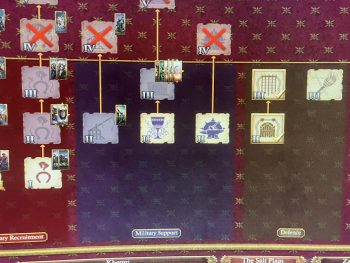 Choosing available options for a small settlement slot
Choosing available options for a small settlement slot
There are different types of ‘chains’ you can pick your settlement upgrades from. I really like this part of game management. And it’s essentially guns or butter. They have different classifications for different factions, but that’s just wording.
Resources – Available in certain settlements. They provide specific goods, like tradable resources (hides, marble, clay), plaques (related to some faction goals), or other benefits. Most settlements do not have this option, so I often take whatever it is. It’s nice when it’s a gold mine, as that is the best source of gold in the game.
Military Recruitment – These produce basic, and advanced, military units.
Basic buildings usually only have three levels, and you can start them when your Province Capital is only first level. They usually offer some other minor benefits, but this is where the meat shields and lower-level units come from. You build your starter armies here.
Advanced buildings usually go up to levels four or five, and provide elite units and enhancements. You need advanced units to get through the middle, and end, games. Purely gun stuff here.
Military Support – These buildings support your armies, lords (Each army is led by a lord), and heroes (a hero is a unique unit that can perform helpful actions and also provides benefits), and settlements. They might make recruitment costs less, reduce your casualty replenishment rates, or let you recruit infantry units with shields. More guns.
Defense – This a limited category, usually letting you add walls to your settlements, or some other defensive improvement for it. I always add walls to smaller settlements, but otherwise, this is my least-used category. As the title implies, this is a defensive category and kind of feels like a mix of guns and butter.
Infrastructure – Here you really get into the guns or butter dichotomy. There’s a wide range of options. Your main gold-making options are here. Also, you can focus on growth (how fast your settlements expand), and public order (if public order gets to-100, you have to put down a rebellion).
There are a lot of options here. Since you only get three additional slots in a smaller settlements, the choices are important. I do try to put up walls in small ones, so, with the Capital building, you only have two free slots. And you’re really choosing between guns and butter.
Misc. -Some settlements have Ports, and some have Landmarks. Ports generate gold and have their own chain. Landmarks are unique to a specific settlement and offer some benefit often worth taking. Even if it’s just a one-level use of a slot.
Choosing Your BuildingThe game randomly has factions declare war on you. And you can also end up at war with other factions through diplomacy options (that’s part of a follow-up post). You need to build up your first army in a hurry (you start the game with a lord and a small army of five-eight units, usually). Some faction is already pissed at you.
It’s tempting to use an early slot to pick a chain with a new military unit. You can get a more diverse, more effective, army, right out of the gate. Guns over butter.
But you gotta pay for all these troop units, and the constantly being constructed new buildings. So, taking that industrial building with a big per turn revenue, is tempting. The gold mine is a no brainer. In a small settlement (remember, only three slots in addition to the Capital), I almost always choose the max revenue building first. I need that stream started to build that first army.
The third (and last) slot usually goes to walls, which help with defense if you end up under siege. It’s the second slot that lets me shade towards guns or butter. For purposes of this discussion, growth and other things that primarily affect the settlement, or my revenue stream, are butter.
Since the capitals have eight to ten slots, and they go up to level five, I tend to use them for the advanced military buildings, to maximize my firepower. Some support, and non-military buildings go up to level five, so you have to factor that in as well. And walls never hurt.
TechnologiesFactions have unique Technology trees. Some are easier to develop than others. But they also reflect the guns or butter dilemma. Especially early on, you can choose technologies (which take multiple terms to develop) to enhance troop unit strength. And also to decrease recruiting costs.
Alternately, technologies that enhance your revenue stream can be vital in providing gold to maintain your growing army. Or building up your settlements.
And any time you can increase your growth or public order, you need to weigh those as immediate needs against those other areas. Butter.
Army Units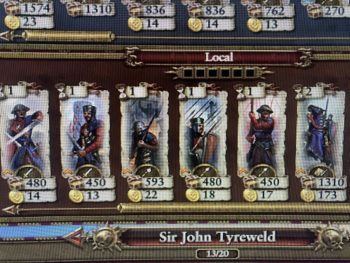 Basic units (like spearmen, or archers) cost a lot less to hire recruit and maintain, than ones such as knights, war eagles, or catapults. The stronger your army, the more it’s gonna cost you. And by mid-game, your main armies had better not still include a bunch of grunts; even if they have leveled up. You needs some higher power units.
Basic units (like spearmen, or archers) cost a lot less to hire recruit and maintain, than ones such as knights, war eagles, or catapults. The stronger your army, the more it’s gonna cost you. And by mid-game, your main armies had better not still include a bunch of grunts; even if they have leveled up. You needs some higher power units.
Armies are capped at a total of 20 units. Do you want a second full-size army? Or two medium-sized ones? Recruit a lord and build a 6 unit army to provide a military presence in a province with falling public order? All those units have an ongoing cost every turn…
You have multiple layers of guns or butter to decide upon. Bad things start to happen if your revenue stream goes negative. And enemies can raid your province, decreasing revenue. Or sack, burn to the ground, or even take over your settlements. And those things can hit your stream.
So, you need to have armies ready not only for attack, but defense. Again – that takes gold.
Wanna hire more lords or heroes? Cha-ching!
In the pic to the right, recruiting a knight will cost about three times as much as recruiting the spearman at arms next to him. But maintaining him each turn will cost ten times more.
So…Budgeting is the allocation of resources among multiple activities. Total War is strategic and tactical game of allocating resources. And basically, you decided whether to spend your gold on guns or butter. And you need the butter to make more gold. To pay for the guns.
I know folks who like playing out the battles. I have fought my share over the years, and I get it. But the faction management part of the game is what keeps me coming back. Guns or butter.
Crusader KingsA quick mention of another game.
For a kingdom management-and-war type of game, the Crusader Kings line (three so far) looks to be the standard. I have tried the first game a few times, and it’s got a MASSIVE learning curve. I think it’s manageable, I just haven’t been motivated to master the basics enough to continue on. But it does look like an awful lot of fun if you figure it out.
Next TimeThere will be a follow-up Total War post, in which I’m going to talk about how I recently had two of my most successful games by applying principles contained in George Washington’s Farewell Address. That was actually the original intent of this post, but I really enjoyed the guns or butter discussion.
Other Video Gaming Posts
RTS’ and Myth: Fallen Lords
Mount and Blade – Part One
Mount and Blade – Part Two
Steamed: What I’ve Been Playing (December, 2023)
Steamed: What I’ve Been Playing (October, 2022)
Fortnite (one of several mentions)

Bob Byrne’s ‘A (Black) Gat in the Hand’ made its Black Gate debut in 2018 and has returned every summer since.
His ‘The Public Life of Sherlock Holmes’ column ran every Monday morning at Black Gate from March, 2014 through March, 2017. And he irregularly posts on Rex Stout’s gargantuan detective in ‘Nero Wolfe’s Brownstone.’ He is a member of the Praed Street Irregulars, founded www.SolarPons.com (the only website dedicated to the ‘Sherlock Holmes of Praed Street’).
He organized Black Gate’s award-nominated ‘Discovering Robert E. Howard’ series, as well as the award-winning ‘Hither Came Conan’ series. Which is now part of THE Definitive guide to Conan. He also organized 2023’s ‘Talking Tolkien.’
He has contributed stories to The MX Book of New Sherlock Holmes Stories — Parts III, IV, V, VI, XXI, and XXXIII.
He has written introductions for Steeger Books, and appeared in several magazines, including Black Mask, Sherlock Holmes Mystery Magazine, The Strand Magazine, and Sherlock Magazine.
The Gorey Century
Yesterday was the 100th birthday of Edward Gorey, one of the most unique, unclassifiable artists that this country has ever produced. Though he died in 2000, he has a continuing cultural presence; he certainly lives on in my life and in the lives of a great many people.
Back in the incumbency of Jimmy Carter, when I was studying theater and living in the dorms of California State University Long Beach, one year I had a roommate named Scott. Scott didn’t fit into our tight-knit little community very well, and while I’ve always prided myself on my ability to get along with everyone, I didn’t get along very well with him. We had a bumpy year together, but I will always be glad that we were roommates, because Scott introduced me to the work of Edward Gorey, and that was a priceless gift that I can never repay him for.
Edward Gorey was a man of many talents — He did scenic and costume design for the stage, winning a Tony Award in 1978 for his costume designs for Dracula (his set design for that production was also nominated) and several of his stories are about ballet, which was one of his supreme passions. Additionally, he did highly individual book covers; for several years he did them for Anchor Paperbacks (including, among many others, editions of H.G. Wells’s The War of the Worlds, Franz Kafka’s Amerika, and T.S. Eliot’s Old Possum’s Book of Practical Cats), which are highly prized today simply for their Gorey covers. He also edited and illustrated a collection of classic ghost stories (1959’s Edward Gorey’s Haunted Looking-Glass) and did covers and illustrations for several of the supernatural mysteries of John Bellairs.
Beginning in the mid-1950’s, Gorey wrote and illustrated his own very short books, and these are the works that his fame mostly rests on. (Many were published under absurdly comical names that are anagrams of his own, like Ogdred Weary or Mrs. Regera Dowdy.) Visually, they are almost always set in the Victorian or Edwardian era (the closest to our own time that I can ever remember him coming was the 1920’s) and are full of bizarre, grotesque, violent, comic, cryptic, and occasionally supernatural incidents, often involving children; in fact, they are usually “children’s books” in form if not in content. The original small hardcover volumes are hard to come by and are pricey when you can find them, but there are four large omnibus volumes, each collecting a dozen or more of the short works — Amphigorey (1972), Amphigorey Too (1975), Amphigorey Also (1983), and Amphigorey Again (2006).
The first thing of Gorey’s that I ever read was “The Hapless Child”, which chronicles the travails of a lovely little girl named Charlotte Sophia. When the story begins, she’s safely ensconced in the bosom of her loving family (“Her parents were kind and well-to-do.”) Then her father, a military man, is reported killed in a native uprising and her grieving mother wastes away and dies, leaving the girl in the cold, utilitarian hands of the family lawyer, who loses no time in sending her to a boarding school where students and staff range from the merely unsympathetic to the positively sadistic. Things rapidly go from bad to worse, and from this point on, the hapless child is subjected to every horror that could befall a person in the most lurid melodrama, all rendered by Gorey in deadpan language and meticulous pen-and-ink images. Things don’t end well for the poor child, and the first time I read her tale, tears rolled down my face, but they weren’t tears of sadness; I was literally shaking with laughter. (Once the story almost got me thrown out of the college library where I was supposed to be working, when I showed it to a friend who was unacquainted with Gorey. We just couldn’t control ourselves.)
It does no good to try and explain to someone who is appalled by “The Hapless Child” rather than delighted by it that what’s being mocked is not the suffering of an innocent child (there was no Charlotte Sophia — Gorey made her up) but rather the reflexive, self-indulgent sentimentality of a hypocritical era and of readers still shackled to its sticky standards. (And one of the things that makes Gorey a complex artist is that he both recognizes the deficiencies of the Victorian age while at the same time clearly adoring many aspects of it.) Either Gorey lands with you or he doesn’t. For myself, there’s nothing that I like more than a good, Gorey story.
Other Gorey delights are “The Willowdale Handcar”, a series of strange, seemingly disjointed incidents that can, with a little imagination and a close examination of the illustrations, be connected into a coherent (if admittedly dark) narrative. (The story features The Black Doll, a sinister, featureless figure which haunts the edges of many of Gorey’s works.) Gorey could be genuinely frightening, as in “The Insect God”, in which huge insects kidnap children and mercilessly sacrifice them to their chitinous deity, and “The West Wing”, a succession of wordless images showing various rooms in a house that you definitely wouldn’t want to spend any time in. (Gorey could make a patch of peeling wallpaper radiate unease.)
Gorey would sometimes make mere objects his protagonists. In “The Inanimate Tragedy” Pins, Needles, a Glass Marble, a Four-Holed Button, and a Piece of Knotted String become embroiled in conflicts and misunderstandings that end in murder and suicide, if those terms are applicable to the fates suffered by a Half-Inch Thumbtack and a No. 37 Penpoint. Gorey would probably say that the word “tragedy” is no more out of place with junk-drawer contents than it is with the equally mundane and transient objects that we call human beings, and in “The Abandoned Sock” you feel genuine apprehension for the sock who foolishly deserts his mate on the clothesline to go adventuring and gets used for a dust rag, chewed by a dog, caught in a tree, and picked apart by birds to use for their nests until nothing is left of it. Does the sock’s life (which it found “tedious and unpleasant” when it was pinned on the line next to its dull mate) turn out all that differently from our own personal dramas?
One of Gorey’s most famous stories is “The Doubtful Guest”, which sees an odd, penguinish-looking creature attired in tennis shoes and a striped scarf turn up one night at the house of a settled, respectable (boring!) family and proceed to turn things upside down. Without ever uttering a sound, the uninvited visitor eats the plates at dinner, tears chapters out of books, suffers fits of bad temper during which it hides all the bath towels, safeguards objects that it takes a liking to (like expensive pocket watches) by dropping them in a pond, eerily sleepwalks up and down the hallways at night, and otherwise disrupts the placid routines of the baffled family, who have no hope of ever going back to life as it was, because “It came seventeen years ago — and to this day / It has shown no intention of going away.” (Many of Gorey’s stories are written in verse.) You understand the family’s frustration and despair, but you may also feel that a little unpredictability might do them some good. I have my own Doubtful Guest — a college friend of my wife made him for me, and I was delighted to learn that Gorey had several himself, that admirers had made and sent to him. (I have a Black Doll too, but that I had to buy.)
Gorey did several alphabet books; the most well-known (images from it have appeared on calendars, tee-shirts, coffee mugs etc.) is “The Ghastlycrumb Tinies.” Here dewy-eyed tots come to shocking and painful ends (“A is for Amy who fell down the stairs / B is for Basil assaulted by bears / C is for Clara who wasted away / D is for Desmond thrown out of a sleigh). Gorey doesn’t imply that these grim events are the children’s faults, but he doesn’t imply that they aren’t, either.
Gorey wasn’t uplifting or heartwarming, (except perhaps in “The Pious Infant”, the story of Henry Clump, a little boy who is too good to live long, and thank God he doesn’t) but now and then justice is served, as it is in “The Bug Book”, one of the few Gorey stories that’s not in black-and-white. In this tale of collective security and well-earned retribution, a peaceful group of bugs have their happy society wrecked by a new bug in the neighborhood, a big, brutish interloper who, despite their best efforts to be friendly and welcoming, “broke up their parties” and “waylaid them whenever they went visiting.” After a secret meeting in the dead of night, the problem is solved by squashing the obstreperous insect flat with a big rock. His remains are placed in an envelope addressed “To whom it may concern” and a pleasant and lively social life is resumed (in Gorey’s world, clearly the happiest of happy endings).
The great Literary critic Edmund Wilson (he who disparaged detective stories and sneered at Tolkien and Lovecraft) was an early admirer of Gorey; he found the artist’s singular little books pleasingly suggestive and allusive. “I find that I like to return to them,” Wilson said. The critic was wrong about a lot of things, but he was right about Edward Gorey. Over almost a half a century, I too have continued to come back to Gorey’s strange, sinister, darkly comic world. There is truly nowhere else like it.
Edward Gorey, this contradictory man who loved attending classical ballet (he was present for every performance of the New York City Ballet for twenty-five straight years) and watching “trash TV movies on the USA Network” was sui generis, the sort of one-of-a-kind genius who can only be appreciated and enjoyed, never imitated or emulated. The mark he set was too high for anyone else to reach… or maybe it would be more accurate to say that it wasn’t too high, exactly; rather, it was too far off to the side.
Whatever deserted house, sinister garden, enigmatic landscape or dimly-lit stage your eccentric spirit now haunts, Edward Gorey, happy birthday to you. Your ashes may have been scattered to the four winds, but your work goes marching on; I fully expect your macabre miniatures to be around for at least another hundred years.
Thomas Parker is a native Southern Californian and a lifelong science fiction, fantasy, and mystery fan. When not corrupting the next generation as a fourth grade teacher, he collects Roger Corman movies, Silver Age comic books, Ace doubles, and despairing looks from his wife. His last article for us was Reading for the End of the World Redux
Chasing the Power to Save in “Telephone” by Percival Everett
Telephone is a deeply affecting story about the lengths to which loss and grief will…
The post Chasing the Power to Save in “Telephone” by Percival Everett appeared first on LitStack.
There, Wolves: Part I
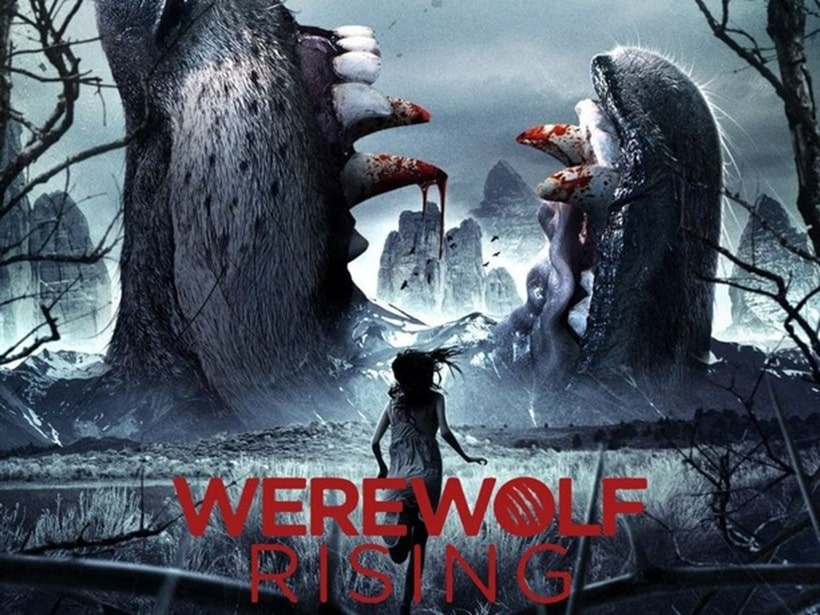 Werewolf Rising (RLJ Entertainment, October 14, 2014)
Werewolf Rising (RLJ Entertainment, October 14, 2014)
A 20 film marathon of werewolf movies I’ve never seen before.
As usual, the films must be free to stream.
I’ve got a bad feeling about this.
Werewolf Rising (2014) YouTubeMan or beast? It looks more like a hairy extra from The Hobbit.
Howling’ good time? Nope. We are off to a rip-roaring start with this dull effort shot entirely in Arkansas, if that floats your boat.
A paper thin plot is played out in a forest with a single digit, lacklustre cast and the whole shebang is shot in glorious murky-vision. The only redeeming feature might have been the beast(s), but they are rubbish.
Oh god. What have I started?
3/10
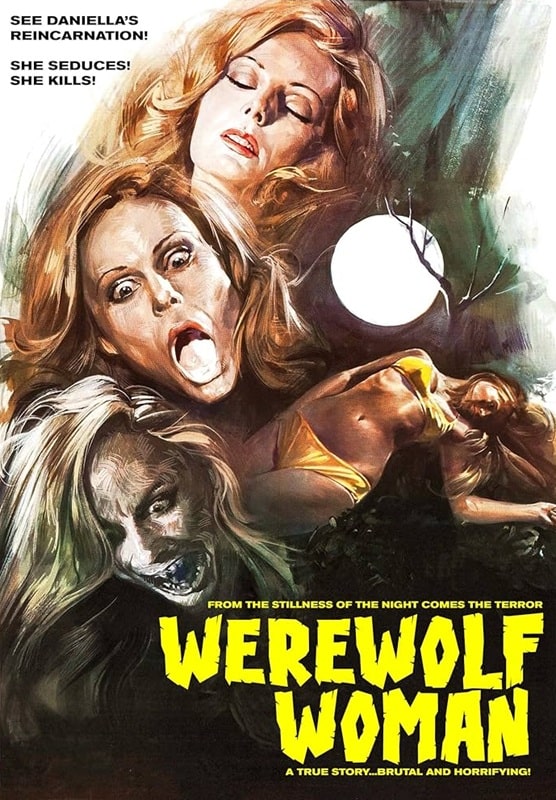
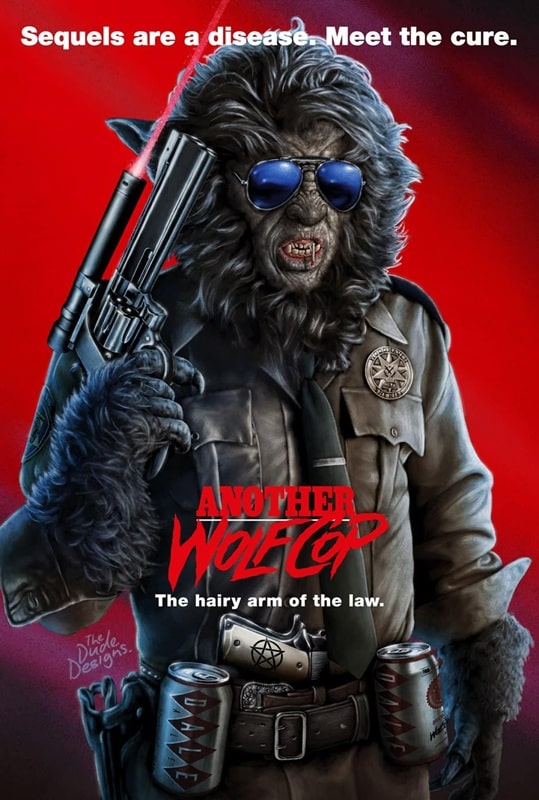
Werewolf Woman (Agorà, March 18, 1976) and Another Wolfcop (RLJE Films, July 29, 2017)
Man or beast? Naked, hairy, black-nosed lady.
Howling’ good time? Apparently, this is a favorite of Quentin Tarantino, but I swear half of his favorites are just obscure titles that he had access to while working in a dodgy video store that he could use as bragging rights. It has elements of revenge flicks that he would use in his own films, but the rest is a messy potpourri of sex, violence, and sexual violence. This being the 70s and Italian, the main feature is hair, whether it is covering the voluptuous frame of the titular lady, the upper lips of the men, or more nether-regions than a topiary enthusiast could ever dream of.
It’s a sordidly strange tale of a woman who is horrifically raped and her lover murdered, who exacts revenge in the guise of a werewolf without any transformation due to recurring dreams that she is the descendant of a werewolf. Confused? You will be. Weird, uncomfortable, badly dubbed.
Can’t say I loved it – but it had a couple of decent moments and some good old-fashioned Italian exploitation gore.
6/10
Another Wolfcop (2017) PrimeMan or beast? Great, practical, wolf. Cop.
Howling’ good time? A proudly Canadian production, this sequel takes the original concept (cop Lou Garou is bitten by a werewolf and brings his new persona to the job) and ramps up the insanity. Reptilian mutants, moustachioed parasitic stomach worms, extremely hairy sex, extremely gory deaths, Gowan on repeat and Kevin Smith yelling ‘slam a cold cock!’ at any given moment. It’s stupid as all hell and I loved it.
Bonus points for enormous werewang.
8/10
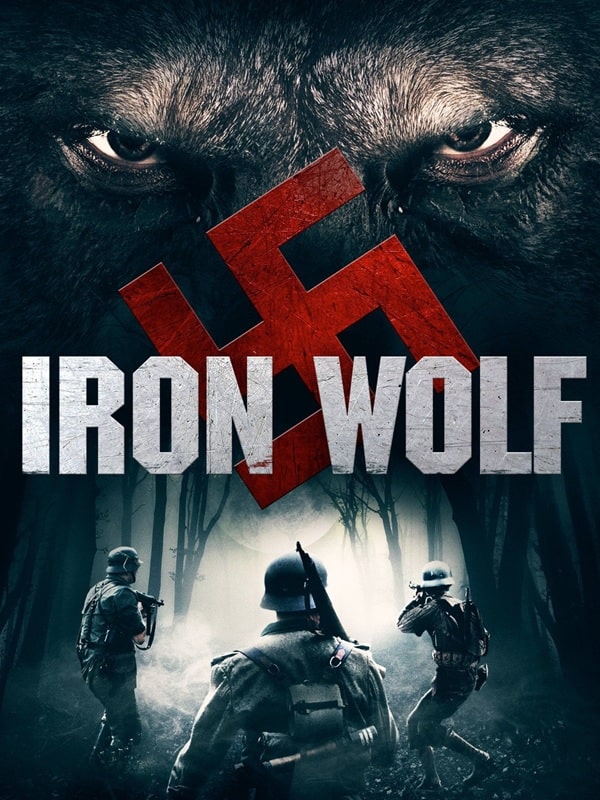
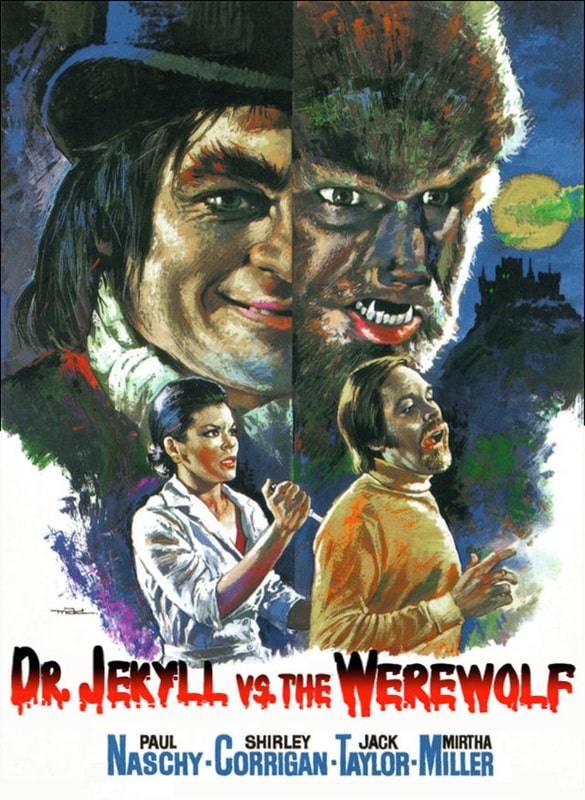
Iron Wolf (RJ Nier Films, September 13, 2013) and Dr. Jekyll vs. the Werewolf (Filmaco, 1972)
Man or beast? Ruby’s bottom of the line costume.
Howling’ good time? Don’t be fooled by the poster (or any poster for that matter), this is not a jolly werewolf romp set in WW2. The film begins that way, with some mis-matched Nazis working in a secret lab (industrial site) and showing off their werewolf that they have trained to only attack non-Nazis.
It’s cheap and cheerful, and somewhat passable, but then is brutally cut short and jumps forward in time to some extremely dull modern, German teenagers. They are hanging around the semi-ruined labs for some B.S. reason, the wolf creature gets out, and it becomes a ‘desperate fight for survival’. The direction is pretty limp, and the acting isn’t great – I really wish the German cast had been allowed to speak German and for the film to be subtitled. It makes no sense to flatly deliver the lines – lines that are flat to begin with.
As usual, the only saving grace could have been the werewolf, but this big doofus is just a dude in a Halloween wolf costume (and not the deluxe version) stuffed into a Nazi uniform. Laughably bad.
4/10
Dr. Jekyll vs. the Werewolf (1972) TubiMan or beast? Hairy-faced fella.
Howlin’ good time? I’m no stranger to Paul Naschy werewolf flicks, but this is one of the dozen movies he made that I missed. As with the other Spanish-produced films in this series, Naschy plays the wolfman, searching for a cure, and the whole shebang has that lovely dark gothic feel of the other films.
However, this one has a personality split as broad as the titular characters. The first hour is tedious, lots of sitting around talking, but then, once Dr. Jekyll’s grandson starts shooting up the wolfman, it goes batshit crazy. Cue Hyde going on a sadistic rampage, whipping every bosom he lays eyes on, go-go dancing, drunk tipping and other nefarious tomfoolery. It’s not enough to save the movie, but it is daft enough to warrant an extra mark.
5/10
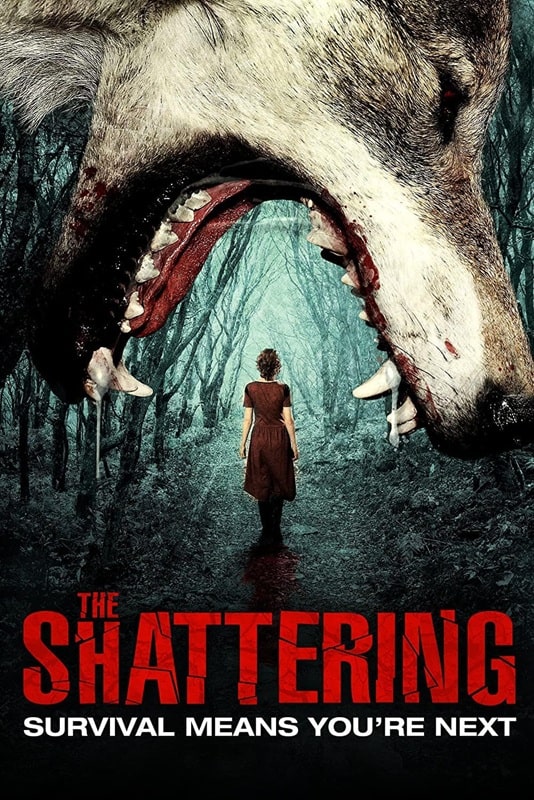
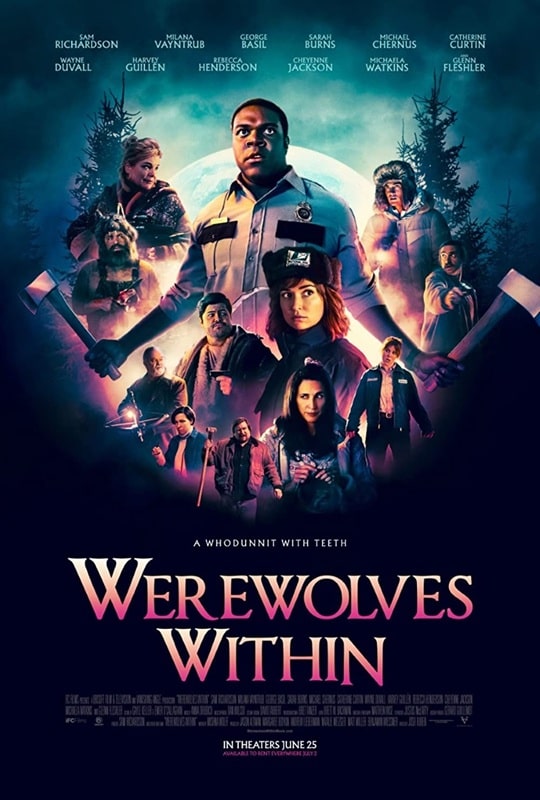
The Shattering (Film Cartel Entertainment, March 24, 2015) and Werewolves Within (IFC Films, June 25, 2021)
Man or beast? Unseen thingy.
Howlin’ good time? Let’s get this one out of the way. A group of randos are stuck in a cabin due to a bullshit plot line involving a healer. Some hunters are stuck in the woods due to some bullshit plot line about collecting wolf spit. A POV camera eats most of them. A very bold decision to not show a single werewolf in this badly shot, badly acted, werewolf flick. The only shattering that went on was in my pants when I realized I had to sit through this tedious dirge.
3/10
Werewolves Within (2021) NetflixMan or beast? Nice, practical werewolf.
Howlin’ good time? I really should have saved this until last, but I needed a little pick-me-up, and this sure hit the spot. Based on the videogame Werewolf, this film is a joy from start to finish. It’s a horror comedy in the same vein as Shaun of the Dead, even going so far as to include some Edgar Wright-type editing, and for the most part, the comedy sticks the landing.
It helps that the two leads are so likeable and awkward; Sam Richardson is perfect as a spineless park ranger, and Milana Vayntrub is adorable (and renews my pining for the aborted Squirrel Girl series). The setting is a hokey town in Vermont, full of troubled characters that put me in mind of Northern Exposure, or even Twin Peaks, and the plot weaves in a bit of social commentary about pipelines, gentrification, and acceptance.
For a further comparison, I had as much fun with this as I did with The Beast Must Die, and I even guessed correctly! Highly recommended.
9/10
Previous Murkey Movie surveys from Neil Baker include:
What a Croc
Prehistrionics
Jumping the Shark
Alien Overlords
Biggus Footus
I Like Big Bugs and I Cannot Lie
The Weird, Weird West
Warrior Women Watch-a-thon
Neil Baker’s last article for us was What a Croc, Part III. Neil spends his days watching dodgy movies, most of them terrible, in the hope that you might be inspired to watch them too. He is often asked why he doesn’t watch ‘proper’ films, and he honestly doesn’t have a good answer. He is an author, illustrator, outdoor educator and owner of April Moon Books (AprilMoonBooks.com).
Delirium by Lauren Oliver (Delirium #1)
They say that the cure for Love will make me happy and safe forever.
And I’ve always believed them.
Until now.
Now everything has changed.
Now, I’d rather be infected with love for the tiniest sliver of a second than live a hundred years smothered by a lie.
Lena looks forward to receiving the government-mandated cure that prevents the delirium of love and leads to a safe, predictable, and happy life, until ninety-five days before her eighteenth birthday and her treatment, when she falls in love.
Rating: 4 Stars
Favorite Quotes:
But it does not tell you this: that love will turn the whole world into something greater than itself.
Love, the deadliest of all deadly things: It kills you both when you have it and when you don’t.
This is a dystopian book that’s a little different from The Hunger Games & Divergent and the like. The world isn’t ending, necessarily but the government has mandated that everyone over the age of 18 has a procedure that basically renders you incapable of love and most of the other strong emotions. They literally cut a piece out of the brain to achieve this! I cannot imagine a time when the majority of people would be pushing for this to happen, but here it does. I guess I can see some appeal to not suffering through a broken heart but to cut out a piece of my brain to achieve this? Uhhhh, no thank you!
The story follow Lena Haloway as she is preparing for her procedure. She got about 3 months until it is scheduled and there are interviews that have to be done so that the government can pick a husband suitable for her (because if you don’t care, how could you choose for yourself?) and what she will do for a living (will she go to college or just get a job until she is married?). They regulate the music that your allowed to listen to and the books that you can read. Something that Oliver did that is really different from most dystopian stories is the fact that everything we once had still exists. There are cell phones and cars and the internet. They are all strictly monitored and not everyone has them but they are still in use. So many times you read these types of books and its like living in the dark ages and I thought this was a nice touch.
One of my gripes about this book is that if you take away the portion of the brain that controls emotion, how does anything get done? If you don’t care, how do you take care of your children or get up everyday and go to work and cook and clean? Love guides almost all the things we do. We work because we love our families and want to take care of them. We love our children and so we play with them and discipline them and laugh with them. If you remove all those things are you really still alive? Aren’t other things in our lives determined by a type of love? If you were a police man breaking up an illegal party with a bunch of teenagers involved, would you care enough to just send them home or would you release the dogs against them and beat them with clubs and would it matter either way? Very confusing to me. I guess if love was that simple and it could be removed without interfering with everything else, then maybe, but it simply affects too many things.
Anyway, the story drags on a bit for me once the world is set up and you get a grasp on what’s happening. Lena and Hana (her best friend) start to break the rules and go to unauthorized parties after curfew. Up until this point, they’ve had almost no contact with the opposite sex besides adult males (parents and teachers who have all had the procedure) and these parties are full of uncured boy their own age. So in typical teenager fashion they are rebelling before they can’t anymore. Then Lena meets a boy, Alex, who shows her that there is so much to be missed by having the procedure done and how much the cureds have been lying to everyone (particularly Lena). As they get to know each other and fall in love Lena realizes that there’s no way she could ever willing have the procedure and she tries to come up with a way for them to escape.
Will they find a way or will Lena have to lose part of herself?
*SPOILERS BELOW*
First of all, I cannot believe that there wasn’t a love triangle in this book! It was kind of nice to not have to be vacillating between two love interests!
I was wondering throughout the whole beginning of the book if it wouldn’t turn out that Lena’s Mom was still alive. Considering how long ago she supposedly killed herself she was still very present in Lena’s mind and that usually means something is coming up. It’s too bad that she didn’t get to see her before she escaped though.
I cannot BELIEVE that Alex doesn’t make it with Lena to the Wilds! He sacrifices himself up to the regulators so that Lena can get away. He got shot and captured but I’m not sure if he’s alive or not! What will she do now in the Wilds all alone? Being with Alex was the main reason she decided to run away in the first place! Sheesh, I wonder what Oliver has planned for book 2?
Unravel Me by Tahereh Mafi (Shatter Me #2)
tick
tick
tick
tick
tick
it’s almost
time for war.
Juliette has escaped to Omega Point. It is a place for people like her—people with gifts—and it is also the headquarters of the rebel resistance.
She’s finally free from The Reestablishment, free from their plan to use her as a weapon, and free to love Adam. But Juliette will never be free from her lethal touch.
Or from Warner, who wants Juliette more than she ever thought possible.
In this exhilarating sequel to Shatter Me, Juliette has to make life-changing decisions between what she wants and what she thinks is right. Decisions that might involve choosing between her heart—and Adam’s life.
Rating: 4.5 Stars
Favorite Quotes:
My troubles have arrived fashionably late to this conversation, inconsiderate beasts that they are.
It’s the kind of kiss that makes you realize oxygen is overrated.
He’s standing right in front of me and I miss him like I haven’t seen him in years.
“I think there’s something about the impermanence of life these days that makes it necessary to etch ink into our skin,” he says. “It reminds us that we’ve been marked by the world, that we’re still alive. That we’ll never forget.”
Another heart wrenching book by Mafi. She really is a wonderful writer. I couldn’t put the book down. I devoured it in a day and now I’m dying to know what happens next. I’m not sure but I think this is a three book series so the next one should be the end. I love the way your heart is practically in your throat the whole book. There is so much emotion happening and Mafi writes in a way that you can’t help but experience everything along with the characters.
Book two picks up shortly after where book one ended. Juliette, Adam and James have been at Omega Point for about a week and things are starting settle down. Once the immediate danger is over Juliette has retreated back inside herself because she is now surrounded by people who know what she can do and some of them include children. She doesn’t want to scare anyone and so she decides to just keep to herself and only really talk to and associate with Adam. What a hard thing to have to experience at the age of 17, to try to make friends when you’ve never done something like that before. She’s always been immediately ostracized when she was around other people and so she doesn’t know how to start getting to know people. I thought this was a good road for Mafi to take with this story, it makes it more believable. Because of this, she comes off even scarier than she would have if she even made some small attempt to interact with people. The story about how she killed that little kid years ago gets out and now everyone is looking at her just like people always have. So much for being with people who would understand her because she wasn’t the only one with some bizarre powers. Castle thinks that there might be more to Adam being able to touch her than it just being some fluke and now he’s undergoing some test to see if there’s another reason he can touch her. The results are devastating and now Juliette has to decide how she’s going to back away from him to keep him safe. She learning more about her own abilities and now she’s not just worried about her touch being dangerous. Her whole body is a weapon and she has no control over it. On top of that monumental obstacle, she is still keeping secrets from Adam. She hasn’t told him that Warner can touch her too and that she kissed him right before she shot him. I don’t know why she doesn’t say anything. She should have told him as soon as he was healed. There was no real reason for her not to except for the part where she actually enjoyed it. She could leave that part out of it as far as I’m concerned but the rest of it she should have told him. You can’t keep secrets like that. The fact is that if they really loved each other there would be no reason to keep these kinds of secrets. Adam might be a little pissed but the fact is she did what she needed to do so that she could save him and I don’t think that he would be angry for long.
Kenji plays a much bigger role in this book and I’m so glad because I love him! He’s like the only bright spot in the book; his personality is so bright and carefree that you can’t help but smile when he’s around. This is not to say that he doesn’t have some serious moments and he does put Juliette in her place a few times but she really needed someone to kick her in the ass so she would quit moping around. The reality is that she is the primary reason that The Reestablishment is hunting so fiercely for Omega Point. Not that this wouldn’t have come to a head at some point in the future but the timetable’s been moved up and that is because of Juliette. Warner can’t let her go and now that his father is involved he hasn’t got a choice but to find her. After learning more about him in Destroy Me I was pretty sure he would be a big part of this book as well. We learned even more about him and his past as him and Juliette spend some time together.
Kenji has been working with Juliette to help her figure out and hone her skills and she starts to get a little more control of it. I was hoping this would naturally lend itself to help with her self-esteem but that doesn’t really happen. If she should would just accept who and what she is life would start to become more manageable for her but she can’t stop seeing herself as a monster. She’s come out of her shell a little bit and it starting to make some friends but everyone at Omega Point is preparing to battle Warner’s father and his men and they need Juliette to help them. With the strength of her power she could be the edge that they need to win.
Will she be able to put her personal feelings aside and focus on the more important objective? Will she be able to use her abilities against the “bad guys” to save the innocent citizens of sector 54? How will she reconcile her feelings for Adam and Warner?
*SPOILERS BELOW*
Oh man this book was torture for me! I’m still so unsure who I want Juliette to end up with! Her and Adam have such an intense relationship and it’s been growing since they were kids. Now that they have finally found each other and Adam can actually touch her things were looking up. This was not to last, of course, and now Adam has discovered that he has an ability as well. He’s a disruptor and that’s why he can touch her because he can cancel out her power. The problem with this is that he has to be constantly on guard in order for it to work and that can’t happen when they are getting physical with each other. She nearly kills him at one point! So she’s decided to stay away from him and it’s destroying both of them. Then there’s Warner. This is the first time that Juliette really gets to know him for who he is instead of the leader of sector 54. When she was listening to his father tear him down and then again later when he was being held captive at Omega Point and she had to interrogate him. He was so sweet to her and let her see a part of himself that I don’t think he’s ever shown anyone else. The scars on his back, the way he really sees himself, the way he sees her and how she makes him feel. It was breathtaking to witness. Now she’s so confused about what to do and she hasn’t told Adam about any of this and she hasn’t told Warner that Adam is his brother (which shocked the hell out of me, by the way) and she’s somehow in the middle and unable to decides what to do. She’s also hiding a lot of information about Warner. She doesn’t tell anyone that she knows why he can touch her and what his ability is and I’m not sure why. What could it harm? It just makes her look worse for keeping it to herself. I think she loves them both but who is the better choice? Adam is so loving and caring and wants to take care of her and he loves her with a desperation that is a little frightening. Warner can be gentle and caring and he doesn’t pull any punches. He is who he is and he accept Juliette for who she is and what she is capable of. He also loves her in an overwhelmingly obsessive way. I wonder if this is something about Juliette or if it’s something in their DNA that she attracts? Either way it’s a tough decision.
I wish that Kenji wouldn’t have stopped Juliette from killing Anderson. That guy is a monster and someone needs to take care of him. I understand why he did it but at the same time you don’t go to war with someone in his position if you don’t have his replacement ready to take over. Then in the end when he just shot her in the chest and leaves! This was the only real issue I had with the book. Why would he have gone through the trouble of shooting her in front of Warner only to leave before he could witness what it did to him? And, why would he have had “the girls” kidnapped to use to heal him only to leave them behind? If anything, he should have at least taken them with him back to the capital.
I’m really looking forward to seeing how it all ends.
Destroy Me by Tahereh Mafi (Shatter Me #1.5)
Perfect for the fans of Shatter Me who are desperately awaiting the release of Unravel Me, this novella-length digital original will bridge the gap between these two novels from the perspective of the villain we all love to hate, Warner, the ruthless leader of Sector 45.
In Tahereh Mafi’s Shatter Me, Juliette escaped from The Reestablishment by seducing Warner—and then putting a bullet in his shoulder. But as she’ll learn in Destroy Me, Warner is not that easy to get rid of. . .
Back at the base and recovering from his near-fatal wound, Warner must do everything in his power to keep his soldiers in check and suppress any mention of a rebellion in the sector. Still as obsessed with Juliette as ever, his first priority is to find her, bring her back, and dispose of Adam and Kenji, the two traitors who helped her escape. But when Warner’s father, The Supreme Commander of The Reestablishment, arrives to correct his son’s mistakes, it’s clear that he has much different plans for Juliette. Plans Warner simply cannot allow.
Set after Shatter Me and before its forthcoming sequel, Unravel Me, Destroy Me is a novella told from the perspective of Warner, the ruthless leader of Sector 45
Rating: 5 Stars
Favorite Quotes:
It’s a strange thing, to never know peace. To know that no matter where you go, there is no sanctuary. That the threat of pain is always a whisper away.
Love is a heartless bastard. I’m driving myself insane.
I’m at a loss for words with this novella. At the end of Shatter Me I had already firmly decided that I didn’t like Warner. I didn’t necessarily think he was a bad person, per se, but that he wasn’t a good person either. Now I find myself saddened by his story. Raised by a man who never had a nice thing to say to him and never receiving any kind of affection. It’s very similar to Juliette’s story, really, only that in Warners situation it wasn’t because people couldn’t touch him but because no one did. It makes a lot more sense now why he felt to connected to Juliette and now that he has her journal from when she was institutionalized he’s even more determined to find her and bring her back to be with him. I’m not sure if he’s going to have much success with this due to the way he tried to get her affections the last time but I at least have a better feel for who he is and why he is the way he is. I think that anyone can change, given the proper motivation. The question is, will Warner want to change and is love enough of a motivator for him? I think we’ll find out in book two which is next up on the list.
Shatter Me by Tahereh Mafi (Shatter Me #1)
Juliette hasn’t touched anyone in exactly 264 days.
The last time she did, it was an accident, but The Reestablishment locked her up for murder. No one knows why Juliette’s touch is fatal. As long as she doesn’t hurt anyone else, no one really cares. The world is too busy crumbling to pieces to pay attention to a 17-year-old girl. Diseases are destroying the population, food is hard to find, birds don’t fly anymore, and the clouds are the wrong color.
The Reestablishment said their way was the only way to fix things, so they threw Juliette in a cell. Now so many people are dead that the survivors are whispering war– and The Reestablishment has changed its mind. Maybe Juliette is more than a tortured soul stuffed into a poisonous body. Maybe she’s exactly what they need right now.
Juliette has to make a choice: Be a weapon. Or be a warrior.
Rating: 4.5
Favorite Quotes:
Truth is a jealous, vicious mistress that never ever sleeps, is what I don’t tell him. I’ll never be okay.
my cheek is pressed against his chest and he smells like strength and courage and the wold is drowning in rain.
I remember you every day forever in every single broken moment of my life.
His hands are shaking so slightly, his eyes brimming with feeling, his heart thrumming with pain and affection and I want to live here, in his arms, in his eyes for the rest of my life.
I wasn’t sure what to expect from this book when I first picked it up. It was a recommendation from a friend and I thought, what the hell, I’d give it a shot. It was surprisingly good! The writing style took a little getting used to as most of what Juliette thinks is in run on sentences. This makes a little more sense once you figure out that she has been locked up all alone for almost a year and hasn’t spoken to another living soul for that whole time. I think I’d be a little nutty too. Mafi is a very emotionally descriptive writer and because of this it doesn’t take very long for you to be attached to certain characters and to really despise others. I only used four of my favorite lines from this book above but I think I highlighted around 10 or so which is really high for me in any book. I think she’s an amazing writer and once I got used to her writing style, I really liked it.
I’m not sure what year the book is set in but basically we’ve destroyed the planet and there’s not enough food or clean water and The Reestablishment has taken over power of everyone. They’ve decided that in order to correct the problems that society has caused they need to make several changes. Only the strong get to survive, they are getting rid of all the books they can find and trying to create a whole new language. All the unhealthy, weak and old are gotten rid of. It doesn’t specifically say how this happens maybe they are all killed or maybe they are just segregated from the rest of society? Juliette has some sort of weird power where it is dangerous for her to touch anyone. She had an incident in a grocery store and after that she was locked up in what she assumes is an insane asylum. One day she gets a cell mate, Adam Kent, and then things start to change a little for her. Can you imagine not speaking to anyone for a year? Just as she’s starting to get used to the idea of him she’s taken out of her cell and introduced to the sector leader for The Reestablishment, Warner, who informs her that he’d like her to join their cause. He thinks that her “talent” could be really useful to them. Which means, of course, that he would like her to help him kill the rebels. Warner takes her to their base and sets her up with a nice room and nice clothes and good meals and thinks that this is the way to get her to agree to join him. He’s got more on his mind than just how she can help their cause too. Luckily for her, people can’t touch her (at least not most people) so she seems to be relatively safe for the time being.
Adam has been assigned to guard her and as time goes on we learn a little about their past and get to see their relationship develop into something very sweet and intense. Juliette’s got to escape from The Reestablishment, especially from Warner as he’s got some kind of weird obsession with her, and Adam is going to help her to this. When they finally get free, it’s a mad dash to find their allies and get somewhere safe. Then everything gets turned on its head when they do finally find safety. Will this new group be the good guys? Will they want to use Juliette for her “talents” as well? With her suddenly being in a situation of acceptance, how will she handle it and will her and Adam be able to stay together?
*SPOILERS BELOW*
I love the relationship between Adam and Juliette. I wasn’t sure how this would work out in the beginning, since she can’t be touched and was relieved that Adam was the exception to this rule. The fact that they knew each other when they were younger went a long way with me to support the intensity of their feelings for each other. You can’t just meet someone and all of a sudden be in love with them. I liked that they each had formed feelings for the other growing up even though they had never had a conversation before now. Adam is so sweet to her and the fact that he remembered all the small things she did growing up for the same people who treated her so terribly was a nice touch. I’m not sure how this will all play out as Juliette has no experience with relationships of any kind. How will she handle something so intense?
I was disappointed to learn that Adam wasn’t the only one immune to Juliette’s dangerous touch when Warner touched her right before they escaped. I’m not sure exactly how I feel about Warner. I think that he is a product of his upbringing. Even though he can be ruthlessly cold and calculated, I’m not sure that he is a bad person. I think this is all he knows. He seems to have real feelings for Juliette although they way he got to know her was a little stalkerish with reading all about her history and then watching her in the asylum for the past year. He’s obsessive though and he’s not going to just let her go without some sort of fight.
I actually really loved the ending to this book! I totally didn’t see it coming. A whole group of people who all have different abilities. How wonderful for Juliette to finally feel like she belongs somewhere. Adam made a little headway with her self-esteem over the course of the few months they got to spend together but think about how horrible her life would have been. Can you imagine not being touched by anyone for almost your entire life? It’s pretty incredible that she’s still such a good person. The kind of power that she has would have been so dangerous in the wrong hands. The way her parents made her feel like a monster especially pissed me off. As a parent you love your children NO MATTER WHAT and how could you let her feel so alone her whole life? They could have ruined her forever. I’m excited to see what book two brings. I’d like to know what other kind of gifts the people of Omega Point have and how they deal with Warner and the threat he represents.
Next up is Destroy Me, a novella before Unravel Me.


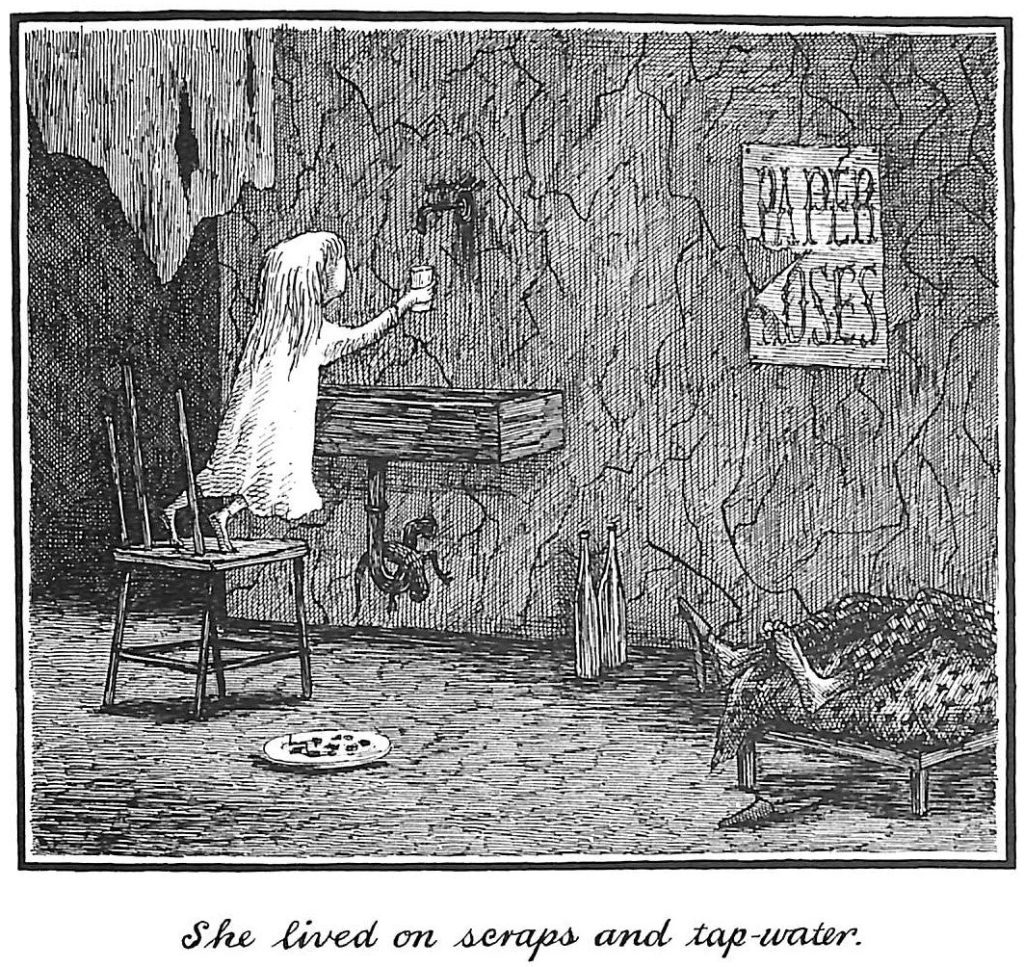
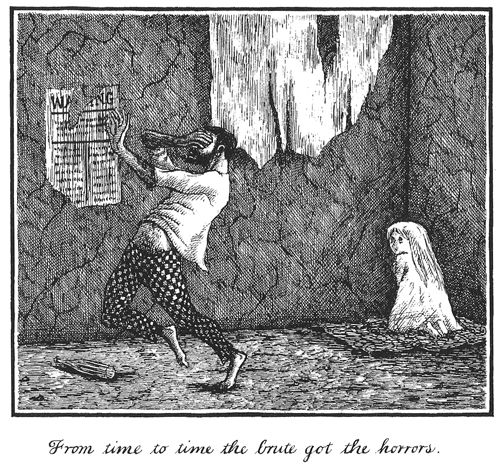
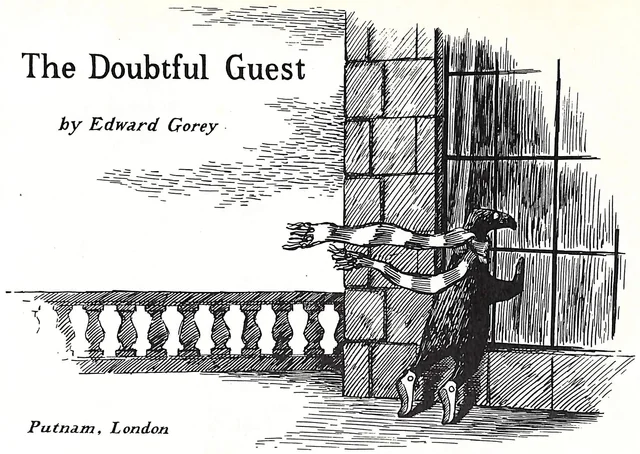
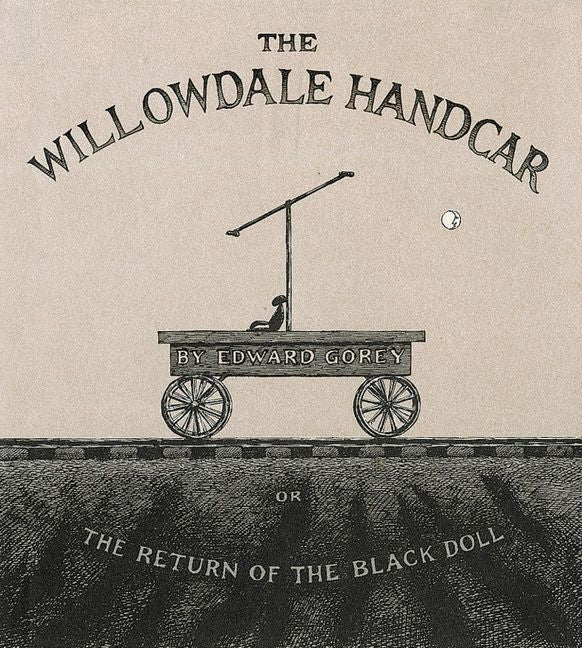




Recent comments